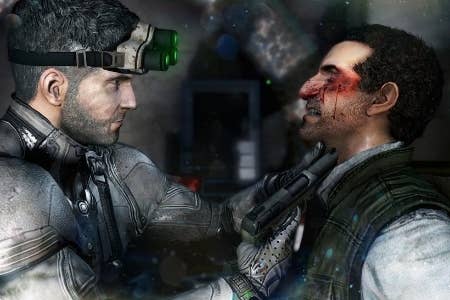Splinter Cell dev: Industry must offer more than violence
Blacklist director Patrick Redding says focus on gore makes games an "easy target", believes diversity can quell concerns
In the wake of this year's Electronic Entertainment Expo, one recurring theme at the major media events was shocking violence. It was picked up on by developers and writers alike, with Tomb Raider, Far Cry 3, The Last of Us, and Splinter Cell: Blacklist among the offending titles. GamesIndustry International spoke with Blacklist director Patrick Redding at the GamerCamp festival in Toronto this weekend to get his take on the uproar.
Redding called the concern partly a consequence of the medium's "preoccupation with visual fidelity and production values," a subject he touched on in his presentation at the event. If the gore in violent games didn't look quite so gory, if it were more stylized, the same sort of actions would pass by without much objection, he said, adding that putting the most violent moments in scripted events further aggravates the problem.
"It won't just be about having beautifully rendered blood and extra-visceral bone-breaking sounds. It'll be more about the decisions..."
Patrick Redding, on the effect of using systemic violence
"If I'm playing the game and these events are being shown to me, and I feel as though it's like a cinematic moment in the middle of the game, then my discomfort with it comes from the feeling that I can't avoid it, or that it's part of the story that has to happen."
As to how the industry can minimize the outcry over violence in games, Redding had a couple suggestions. First, he thinks developers should try embracing a more system approach to violence in the future, where it emerges as a natural interaction of game systems instead of being used as a key plot point or otherwise scripted segment.
"If we're willing to embrace a more systemic approach in the future, then we have the ability to explore these kinds of meanings in a way that will be less uncomfortable for people," Redding said. "It won't just be about having beautifully rendered blood and extra-visceral bone-breaking sounds. It'll be more about the decisions, the choice of, 'Do I believe that ethically, the situation is bad enough for me to do something really terrible to this person in order to get a certain game result?'"
While systemic violence would still prompt outrage (as in the way Grand Theft Auto III's systems allowed players to sleep with a prostitute and then kill her in order to get their money back), Redding said such situations would blow over more quickly because those who played the game understood that the situation was optional and emergent.
"[Violence] becomes an easy target when it's the only thing we're doing."
Patrick Redding, on the need for diversity in the industry
"My argument would be that the initial feeling of outrage that hits when someone sees that a game enables the player to do something morally questionable because the systems support it, that passes a lot faster because as people look at the game, they become more literate procedurally in what makes the game a game, and what makes it interactive. They start to understand that just like the message says at the beginning of the game, 'interactions are not covered by the rating.' Human beings have the autonomy to go in there and do things that are distasteful or of questionable merit, but they're taking those actions on their own."
Beyond that, Redding suggested that cultural concern over violence in games could also be effectively addressed by making games that aren't so reliant on it.
"I think we all agree that for the last several years, games have been dominated by the adolescent male power fantasy-type experiences, across all genres and across all platforms," Redding said. "And I think most of us would like there to be more different kinds of games out there. And if we can do that, if we can provide games that are of interest to a more diverse audience and relateable to a wider range of people, then the presence of some games that are still more violent or action-oriented is going to be less disturbing. There will be a sense that this is a medium that's mature, that's rich, capable of tackling a lot of different subjects, whether they're serious and difficult, or frivolous and purely entertaining. Same as any other medium. But it becomes an easy target when it's the only thing we're doing."

